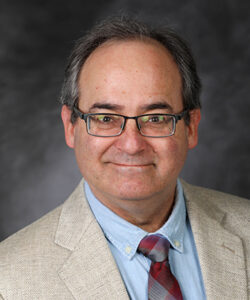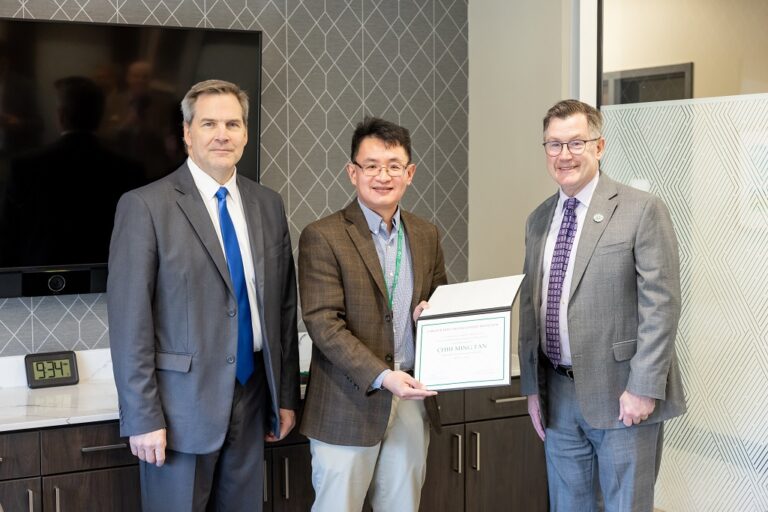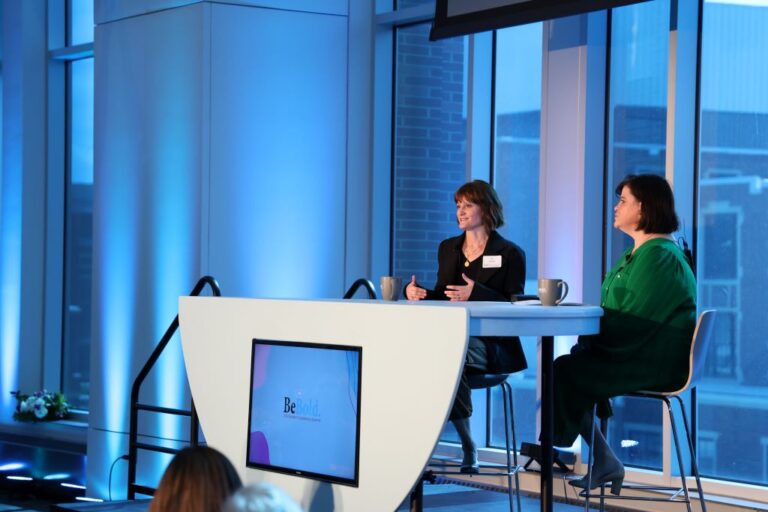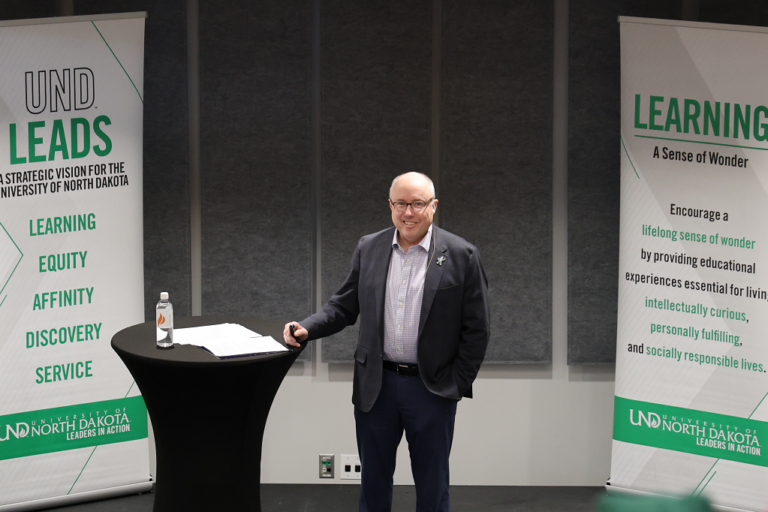UND experts host webinar on K-12 students, parents and teachers’ mental health
College of Education & Human Development faculty offer tips to help North Dakotans cope with pandemic’s teaching, parenting challenges

If you’re a K-12 parent, student or teacher in North Dakota and the pandemic has you feeling overwhelmed, you’re not alone. Furthermore, there are practical suggestions as well as a range of more formal services available that can help.
Those were key themes that emerged from a webinar on Monday in which faculty from UND’s College of Education & Human Development answered questions from the media. The webinar was an outreach effort designed to help people across the state, especially in rural North Dakota school districts, where long distances and limited resources can make coping with the pandemic even more difficult.
“These challenges are different than any that our families have ever faced,” said Melissa Quincer, assistant professor of counseling psychology at UND, during the webinar.
“Suddenly, parents have been working from home, at the same time as they’ve been helping their children with distance learning, and at the same time as they’ve been managing their households,” all while coping with the frightening risks and stay-at-home restrictions of a pandemic.
“So, we are just seeing stress and pressure increase on parents exponentially.” And the same is true for students, teachers and others in education, all of whom have seen their lives disrupted, she said.
But of course, vaccinations now have started to be administered; and that’s not the only good news, said Quincer and her UND colleagues, Kristen Votava, graduate director for Early Childhood Education, and Tamba Kuii Bailey, assistant professor of counseling psychology.
Because out of crisis comes opportunity, and parents, students and teachers alike can use this time to build new communication and technology skills that can help them for the rest of their lives.
For example, the trust, togetherness and open lines of communication that parents can foster will help tremendously as children cope with uncertainty, early childhood educator Votava said.
Bailey agreed. “It is really critical for families to be engaging in family activities, probably even more so now than before,” he said.
As every parent knows, children love stability and security, two traits that have been in short supply worldwide for months. So, try to make home life a Gibraltar of warmth, featuring family dinners, movie nights and other excuses to be together: “Ask, ‘Hey, how are you feeling today? How are you feeling this week?’, and let the child describe it in the best way they can,” he said.
“That helps them see hope, and really moves us toward working through all this in the long run.”

UND’s contributions
The College of Education is both helping the state’s rural school districts navigate the COVID-19 pandemic, and partnering with metro schools such as those in Grand Forks to deliver services, Quincer said.
For example, with a referral from their school counselor, “any student in the Grand Forks School District can be seen at no cost here at the Northern Prairie Community Clinic,” UND’s joint training clinic for graduate students in clinical psychology, counseling psychology, and speech-language pathology, she said.
Likewise with the school counselor’s referral, family members of Grand Forks students can be seen at no cost, too. “And we have referral relationships with and offer telehealth services to more rural districts as well,” Quincer said.
In fact, those services might come in handy. That’s because one tip that was offered again and again on Monday was the following: parents must remember to take care of themselves.
“I know it’s challenging, but for parents, finding time for self-care and for taking a break is huge,” Quincer said.
That’s true not only because the self-care helps, but also because it models good behavior for the household’s children: “They recognize how you’re dealing with anxiety and dealing with stress,” and they’ll learn a lot from a parent’s healthy approach, she continued.
Improving online learning
Among the questions from the media were several related to remote learning and its effectiveness in K-12 schools. For example, do the benefits of in-person schooling outweigh the public-health risks in districts hard hit by COVID?
In a word, no, at least until local, state and federal public-health authorities deem it safe for students to return to physical classrooms, the UND faculty members agreed. “Safety first,” Votava said.
In that case, are there Best Practices that can improve distance learning’s effectiveness?
Absolutely yes, Votava continued.
Just as we’re all learning to do our jobs and be productive over Zoom, so, too, can teachers develop a productive online classroom environment for students. “These days, the coursework in our College even offers those Best Practices for teachers-in-training,” she said.
Among the tips: Build productive relationships. Ask students in the morning how they’re doing; get them to share their feelings.
And for younger students in particular, “don’t just drone on,” Votava said.
“You don’t have to sit like we’re doing right now (during this webinar),” she said. “You can dance, you can sing, you can play songs to learn numbers by.
“Anytime we’re engaging and creating interest and getting students to ask questions, that’s really wonderful.”
Of course, presenting engaging coursework over Zoom is easier said than done, Votava said. And with that in mind, UND is working hard to help North Dakota teachers do their jobs.
For example, “our Teacher Education department really pivoted over the summer to think about how we can support our state school system,” specifically to ease the statewide teacher shortage, she said.
The department helped student teachers go online to fully assist North Dakota teachers in creating lessons and carrying out activities. Likewise, student teachers with enough credits are being encouraged to get their substitute-teacher licenses, enabling them to fill positions and ease the burdens on a pandemic-stressed K-12 system.
“Our goal is both to help student teachers gain experience, and also to give relief to teachers who have been so hard hit by the pandemic and the constant cycle of the quarantine,” Votava said.
Regional authority
That this is a stressful time for parents, students and teachers alike is showing up in the Northern Prairie Community Clinic’s numbers: Referrals are up 300 percent, from 10 a month to about 40 a month, Quincer said.
But for years, UND has been focusing on both rural-health concerns and training clinicians in telecounseling services, and that positioned the College and the clinic alike to respond right away when COVID hit.
“You know, we were doing telehealth services back when I was a student here,” said Quincer, who earned both her master’s degree and doctorate at UND.
“So when the pandemic hit and we were able to pivot so quickly, one of the things that happened is that we became a resource for the entire North Dakota University System.”
And today, UND gets calls from mental-health providers from not only North Dakota, but also surrounding states. “We provide our policies and procedures to anyone who asks,” Quincer said during the webinar.
“We’ve had this long dedication to assisting underserved populations, particularly in the rural area.” Providing that service is a point of pride for everyone at the University, she said.



